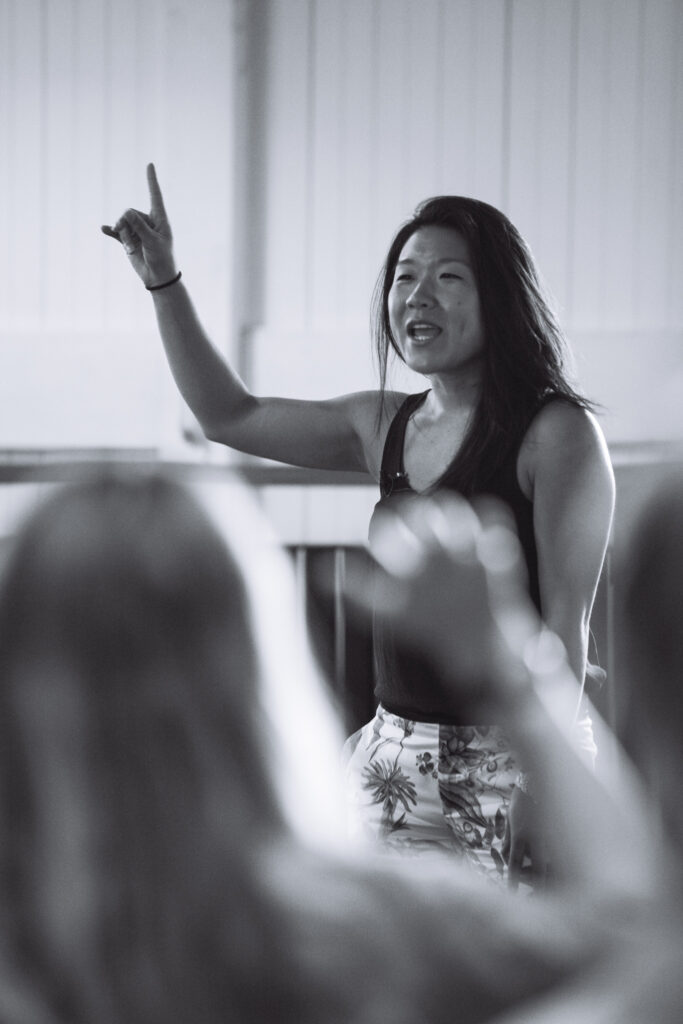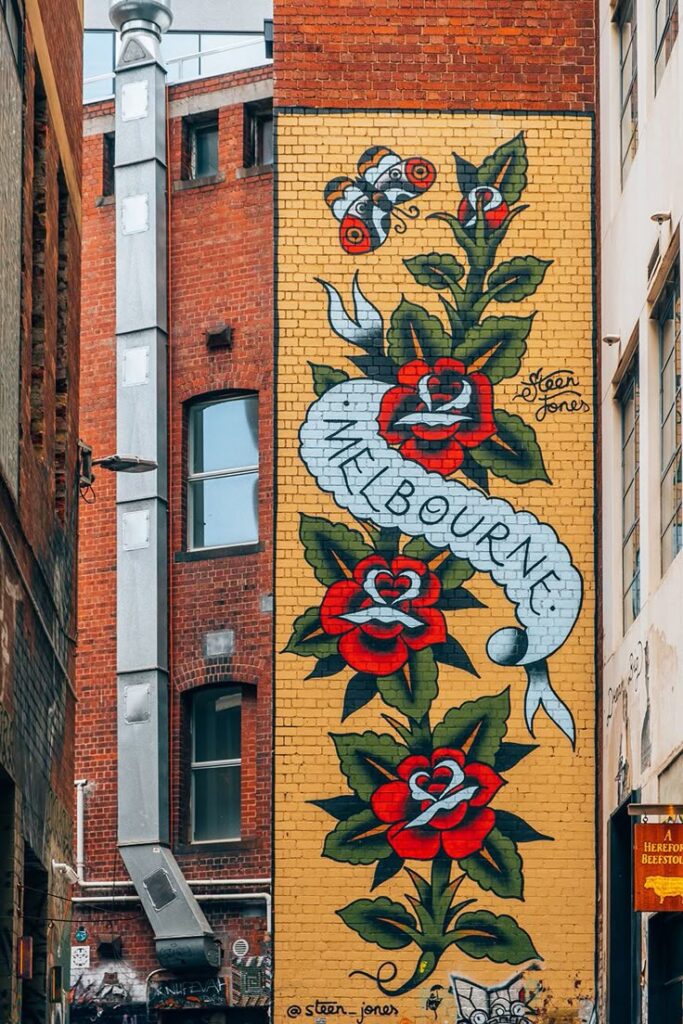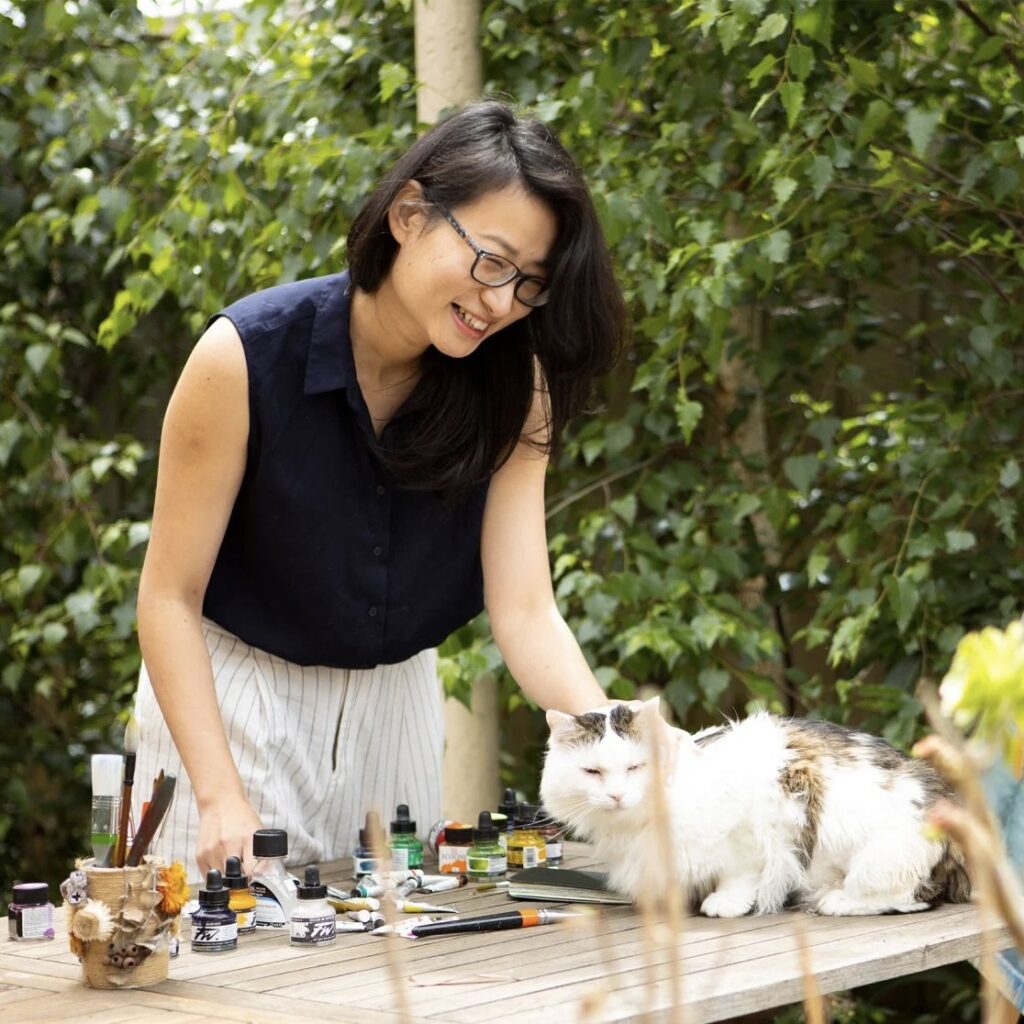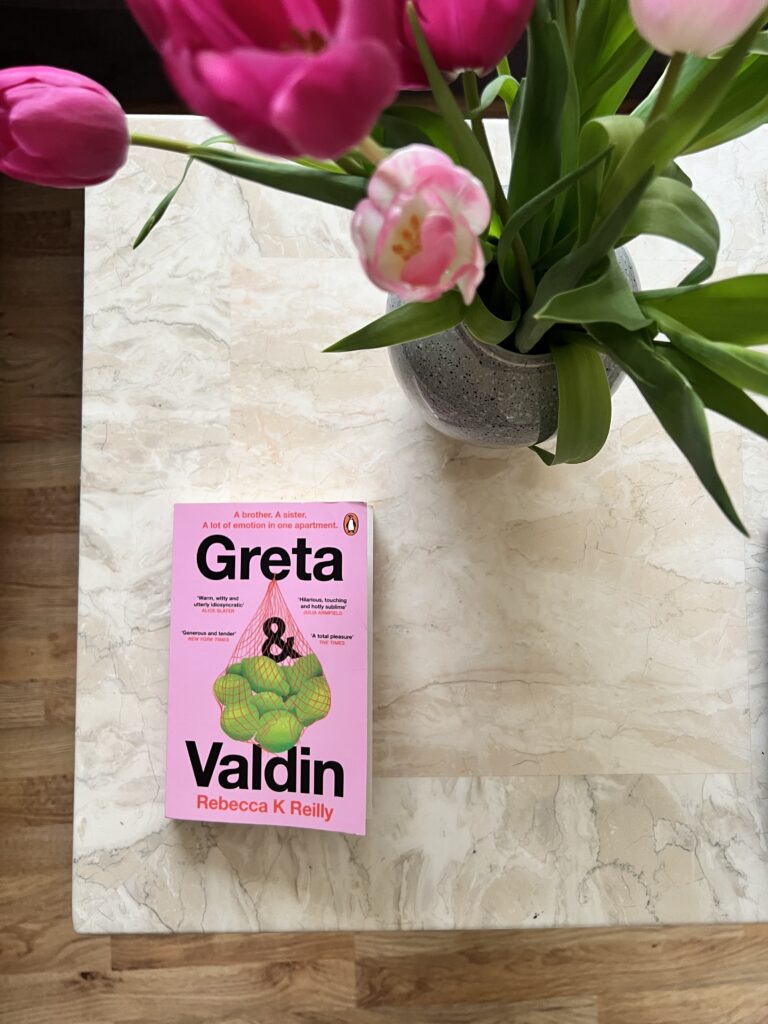The team at Modern Muse Magazine had the honour of interviewing Stephanie Lorenzo, the founder and former CEO of Project Futures. Stephanie’s journey began with a passion to support and rescue victims of sex trafficking in Cambodia, which she shared with her friends. Together, they worked tirelessly to help rehabilitate, support, and empower survivors of these horrific experiences. Learn about Stephanie’s realisation of her true calling at the young age of twenty-two, and how she has since dedicated almost two decades to this cause.
Q: Tell us a bit about yourself and what is Project Futures.
A: I’m currently the head of community engagement at Higher Up, a disability tech company and I’m based in Sydney. Going down memory lane, however, Project Futures is a
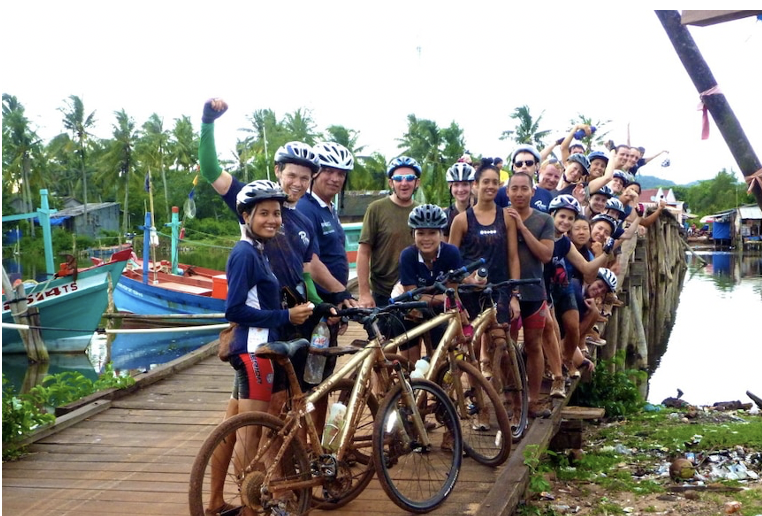
Project Futures bike ride through Cambodia 2010
Q: How did your upbringing influence what you do today? Why did you start Project Futures?
A: My parents immigrated from the Philippines and I grew up in Australia. We didn’t have much when we first came here. However, it was only when I got older that I realised how hard my parents worked to provide me and my two sisters with a great life and education. I felt I grew up like one of the luckiest kids in the world! Somaly’s book struck me a lot as a young woman and made me appreciate living in this amazing country. Essentially, I just wanted to do something to give back. Initially, I simply wanted to run one fundraiser to help this incredible woman and the shelters she ran in Cambodia for trafficked women and children. Coming back from that experience, I couldn’t simply think, ‘Alright, I’m back to my own life now.’ And that’s when the idea of Project Futures happened.
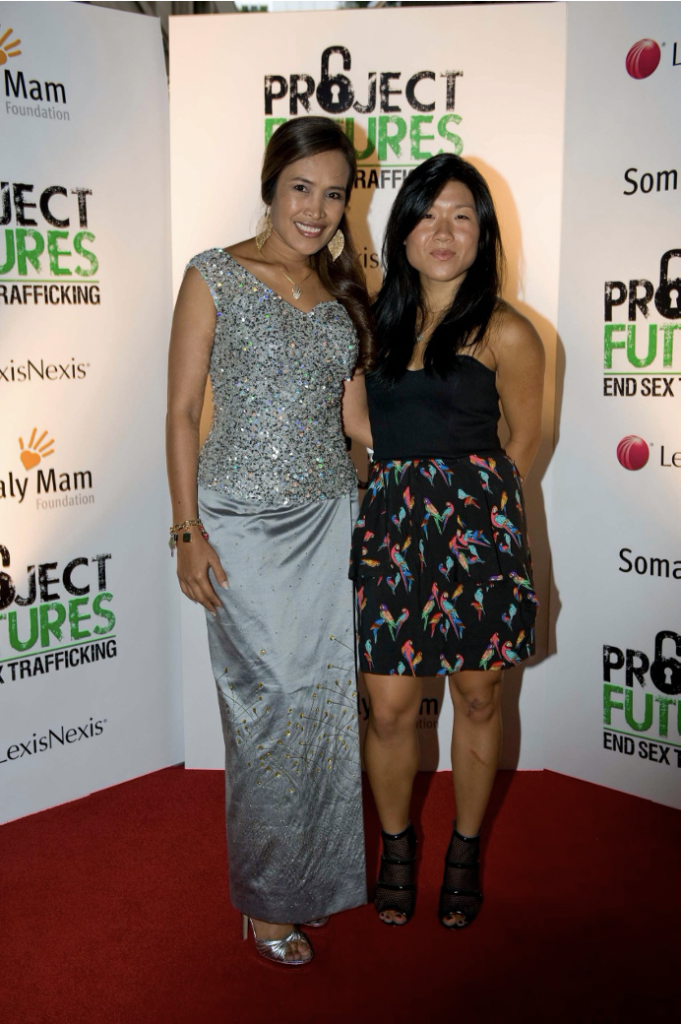
Stephanie with Somaly Mam
Q. What were your biggest obstacles when founding Project Future and how did you overcome them?
A: Some of the biggest obstacles were figuring out how to set up the organisation legally, ensuring that we were doing the right things, and certifying that the projects we executed were putting the money to good use. I’m not a lawyer or an accountant; my background is in marketing and communications. Additionally, we wanted young people to really be involved, not necessarily well-known philanthropists, so we ran parties and events which were a lot of fun. We encouraged these young people to dream up ideas; they had great connections, and networks and were privileged to have an education. Simply getting people on board is always difficult. There was also the element that we were here for a reason, and we didn’t want to make others feel guilty about being privileged in this country. We were here to spread awareness that these horrific things are happening in other places. We had to communicate what we were trying to achieve through this purpose, which was essentially raising the much-needed funding for the work over in Cambodia. The ability to translate the real need and our role was tough. Project Futures always had to have that goal of raising funds at the end of the day. Some people find that really hard, which I understand.
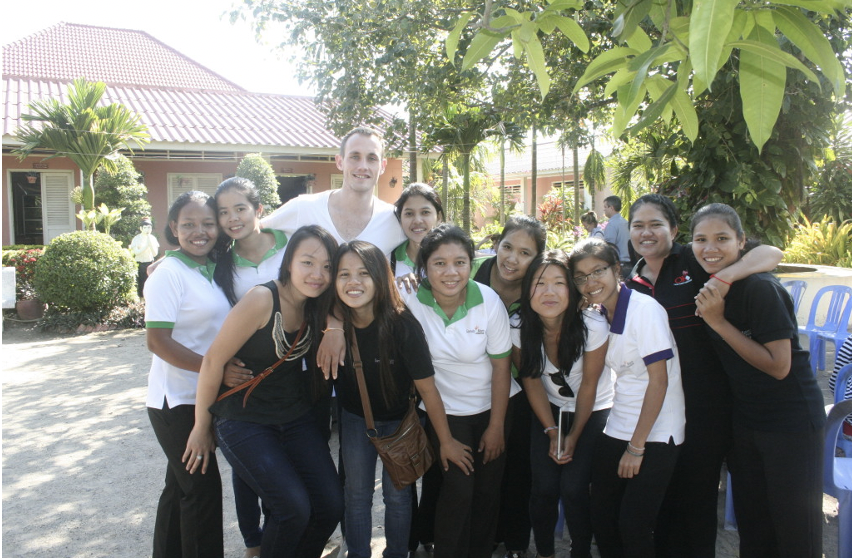
Stephanie with Voices for Change ambassadors in Cambodia
Q: What connects you the most to Project Future’s mission?
A: I guess it’s human connection. It doesn’t matter if you don’t know the victims. They’re still human, right? You can’t help everything, but if there’s an injustice, no matter how big or small, that touches you in a certain way, what can you do about it? We at Project Futures didn’t have a goal to raise X amount of money. We thought, let’s just do something really positive for this group of people and Somaly’s charity in Cambodia. And let’s do what we can. One of the coolest stories that I used to hear was of some girls getting married, having families, and getting a job after they had overcome their ordeals. All of them were able to go to university. Nora, one of the girls we helped, finished her university degree in Psychology. That’s awesome. With our fund, that was able to happen.
Q. Did you have a mentor or a guide when starting a non-profit company?
A: I don’t think I had any when starting. But I had a lot of amazing friends, and I guess you could call them mentors, the really good people who surrounded me constantly. We had a group we called the management team, and they were ten of my friends who were so passionate about different things. One was a web person, one was a graphic designer, one was in PR, a lawyer, a banker, the other was really good at finance. The key was that everyone wanted to use their respective skills and talents towards a good cause. I did have a really awesome mentor whom I’m still in contact with today, who really helped me through navigating strategy and how to present to our board on a more professional level and how to forecast.
Q: What advice would you give to someone motivated to make a difference for a social cause?
A: Just give it a good go! And don’t try and have this big grand plan. From day one, I think that was our biggest win. We didn’t set ourselves some unrealistic goal. We just said, hey, let’s help this woman in any way we can. We didn’t anticipate the first event would raise $80,000 and we’d have people from Canada and America coming on this bike trip in Cambodia with us. In this day and age, sometimes you hear about the bigger ideas on grand scales, but just give something a go; it doesn’t have to be perfect. I think done is better than perfect, that’s one of my big mottos. Every little bit counts and you’ll learn along the way; you never stop learning.
Q: Describe a day in the life of Stephanie.
A: Currently, I’m on maternity leave with my eight-month-old son! I volunteer as a non-executive director at The Generation Foundation, and I’ve been at Higher Up now for almost three years within the marketing team. Our marketing team is made up of approximately 20 people. So, it’s quite big and I’m one of the leaders within that team. It’s an amazing organisation to work for; I think I’m always going to try and look for jobs that have some sort of purpose attached to them, just because of my previous resume and experience. I’m used to working in a lot smaller teams than I am now, but it’s been a really exciting journey and I’ve learnt a whole lot, particularly about disability tech and about that world of people living with disabilities.
Q: How was your transition from Project Futures to being a Director for The Generations Foundation? What learnings have you implemented in your current work?
A: My role as a non-executive director for The Generation Foundation is a voluntary passion project. It’s not necessarily a public fundraiser, as the money that’s raised goes to projects that we support all over the world around girls’ education, so the essence is very similar to Project Futures. I learnt a lot from going from guest reporting to a board to being on the board and being able to use my skills and talents as a director to influence what’s happening within the organisation. Bringing projects that I’m extremely passionate about to the rest of the board and to the staff, moulding and creating the strategy around is a huge win.
Stephanie’s journey and tenacity are a reminder that it’s never too early or too late to make a difference for a good cause. There are innumerable injustices in many parts of the world. However, one small act of kindness can give someone a ray of hope that they might get an education, their dream job, or simply, that they’ll come back home to their family. That could mean the world to them.
Learn more about Project Futures below.

